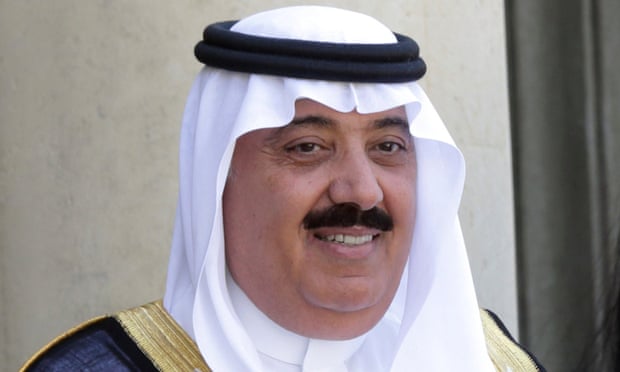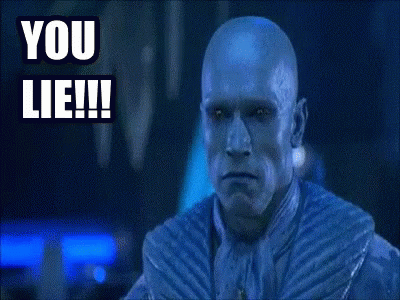The senior Saudi prince Miteb bin Abdullah, once seen as a leading contender for the throne, has been released from detention after paying more than $1bn in a settlement with authorities, a Saudi official said.
Miteb, 65, the son of the late King Abdullah and former head of the elite National Guard, was among dozens of royal family members, ministers and senior officials
rounded up as part of a corruption inquiry, partly aimed at strengthening the power of Crown Prince Mohammed bin Salman.
The official, who is involved in the anti-corruption campaign, said Miteb was released on Tuesday after reaching “an acceptable settlement agreement”. The amount was not disclosed but the official said it is believed to be the equivalent of more than $1bn (£745m).
“It is understood that the settlement included admitting corruption involving known cases,” the official said.
A Saudi official said the prince was accused of embezzlement, hiring non-existent employees and awarding contracts to his own firms, including a $10bn deal for walkie talkies and bulletproof military gear worth billions of Saudi riyals.
The allegations against the others who were detained included kickbacks, inflating government contracts, extortion and bribery.
The claims could not be independently verified.
Saudi authorities had been working on striking agreements with some of those in detention,
asking them to hand over assets and cash in return for their freedom.
News of the purge emerged in early November, soon after King Salman
decreed the creation of an anti-corruption committee led by Prince Mohammed, his 32-year-old favourite son,
who has amassed power since his rapid rise three years ago.
The body was given broad powers to investigate cases, issue arrest warrants and travel restrictions, and seize assets.
Apart from Miteb, the Saudi official said that at least three other people allegedly involved in corruption cases had finalised settlement agreements.
The public prosecutor had decided to release a number of individuals and to prosecute at least five. The official gave no details of their identities.
The authorities have not revealed detailed charges against any of the detainees. It was also unclear whether Miteb would have full freedom or if he would be put under house arrest. Officials from Miteb’s office could not immediately be reached for comment. An acquaintance of the family said earlier on Twitter that Miteb was receiving brothers and sons at his palace in Riyadh.
Among the 11 princes, four serving ministers, dozens of former ministers and officials, and tycoons detained
at the Ritz-Carlton hotel in Riyadh was the kingdom’s best-known businessman, Prince Alwaleed bin Talal, who owns stakes in global companies such as Citigroup and Twitter.
However, many observers believe the primary target of the purge was Prince Miteb, who was in charge of the 100,000-strong National Guard and represented the last significant centre of power left standing after the toppling of the former Crown Prince Mohammed bin Nayef.
By launching a war on corruption, Prince Mohammed bin Salman combined a popular cause with the elimination of perhaps the last obstacles between him and the throne.
As the Sandhurst-trained preferred son of King Abdullah, Miteb was once thought to be a leading contender for the throne.
Before he was sacked by a royal decree on 4 November, he was the last remaining member of Abdullah’s Shammar branch of the family to retain a key position at the top of the Saudi power structure, after brothers Mishaal and Turki were relieved of their posts as governors in 2015.






